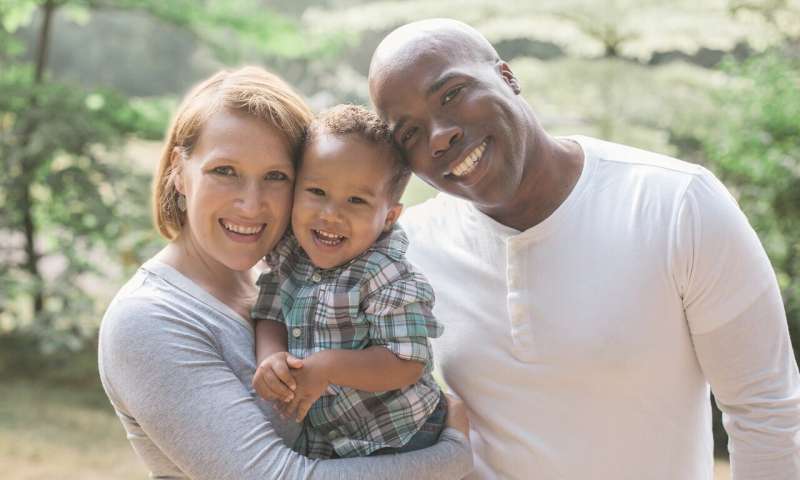Close families able to cope better with economic uncertainty, says new research

A new study has revealed that people who feel a psychological sense of closeness and belonging with their family are better able to cope in times of economic and financial uncertainty.
The research by Nottingham Trent University (NTU) consisted of two surveys, which in total questioned 540 people from a range of backgrounds on their sense of family identification, the support they receive from their family, their wellbeing and how they are managing financially.
Participants in the second part of the study also answered questions about financial distress and how they cope as a family with unexpected financial challenges.
The first survey revealed that people who identify closely with their family have a stronger sense of receiving support. This predicts better wellbeing, and feelings that they can manage financially. The second survey demonstrated the same findings, with the addition of a stronger feeling that their family can collectively cope with financial challenges, which in turn predicts less financial distress.
Lead researcher, Professor Clifford Stevenson, said: "We are all currently facing a time of uncertainty, and for many this means financial worries and hardship.
"Traditional financial research overlooks how the family affects experiences of economic challenge. Our study considers the relationship that social identity and a sense of belonging with a group—in this case their family—has with a person's resilience and ability to cope with challenges.
"We argue that family identification, for example feeling psychologically connected to one's family, fosters support, promoting financial coping. At this time, it means that keeping in touch with your family and maintaining those relationships in whatever way possible is very important to mental health and wellbeing.
"We hope that this evidence will lead to future research into how families can be supported to more effectively cope with and overcome economic challenge together."
The study will feed into the work of Nottingham Civic Exchange, a collaborative think tank at NTU, which is working with partners to better understand the everyday experiences of "Ordinary Working Families" who face economic insecurity.
Director of Nottingham Civic Exchange, Dr. Paula Black, said: "Our focus has been to understand economic insecurity—what we define as harmful volatility in people's economic circumstances. Economic insecurity is just as important as poverty, inequality and poor social mobility in understanding the challenges faced by families in Britain today. But it does not receive the same level of policy attention.
"We are exploring the pressures that can be placed on households, through factors like a reliance on precarious and low paid work, caring responsibilities and costs, and the lack of routes to progression and training, and looking at how we can help to build resilience—within families, and throughout whole communities.
"This research shows us how families and communities experience economic insecurity and the strategies they use to build resilience to economic shocks."
More information: Clifford Stevenson et al. Family Identification Facilitates Coping with Financial Stress: A Social Identity Approach to Family Financial Resilience, Journal of Economic Psychology (2020). DOI: 10.1016/j.joep.2020.102271
Provided by Nottingham Trent University



















